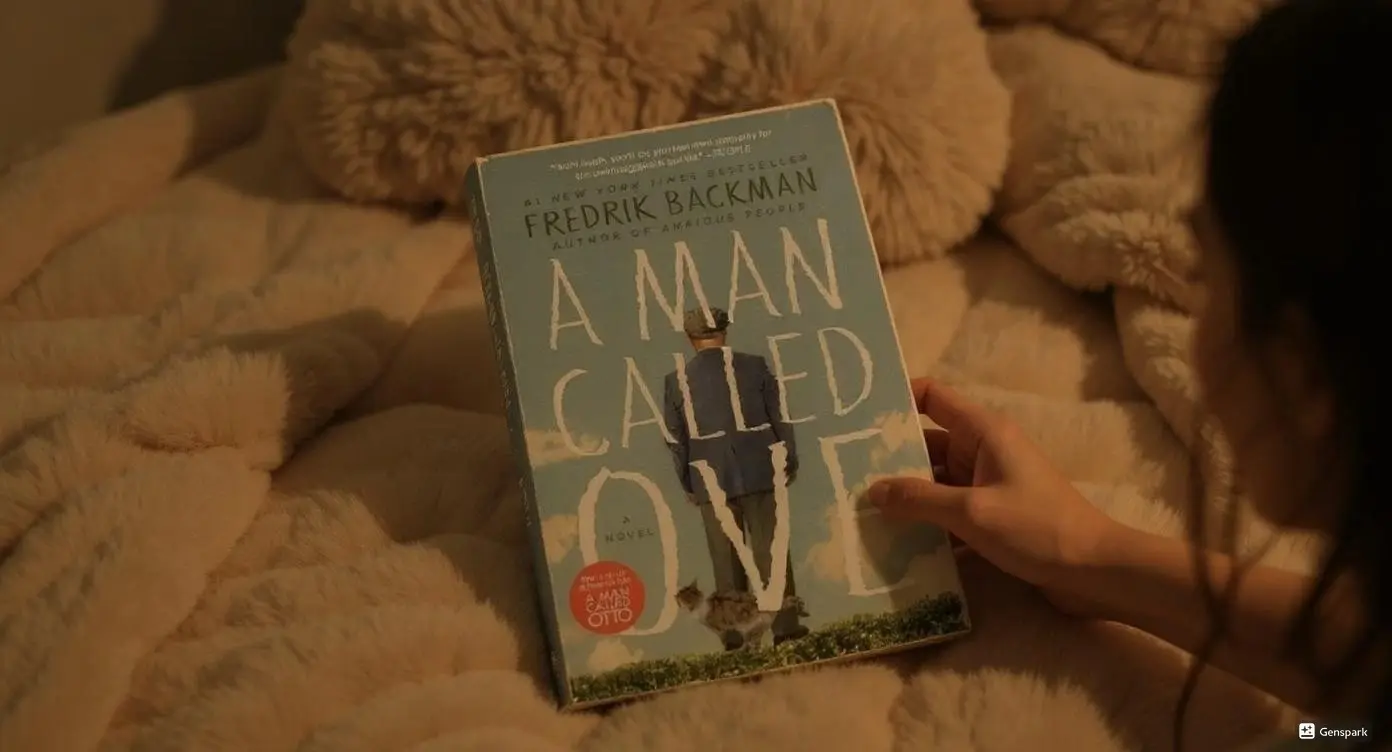Listen for the Lie by Amy Tintera caught my attention after countless bookstagrammers raved about this psychological thriller that’s been dominating bestseller lists since its March 2024 release.
I picked up this book because I’d grown tired of predictable thriller formulas, and Tintera’s fresh approach to the unreliable narrator trope immediately grabbed me. What makes this book special isn’t just the crime mystery—it’s how Tintera weaves in a true-crime podcast investigation while Lucy returns to her hometown five years later. The story resonates with readers who love psychological thrillers but crave something beyond the typical “woman with a drinking problem” narrative that saturates this genre.
Tintera brilliantly subverts expectations by making Lucy aware of her unreliability, creating genuine intrigue rather than frustration. The author balances dark themes with surprising humor, while the podcast element adds contemporary relevance that feels authentic rather than gimmicky. My reading experience revealed layers of small-town secrets and complex female friendships that most reviews haven’t fully explored.
This thriller delivers everything genre fans expect—mystery, suspense, and shocking revelations—while offering unexpected romantic elements and laugh-out-loud moments that left me questioning everything I thought I knew about both the characters and the crime itself.
Key Takeaways
- Amy Tintera delivers a standout psychological thriller that successfully breaks away from predictable genre formulas through Lucy’s self-aware unreliable narrator perspective and clever integration of dark humor with crime mystery elements.
- The true-crime podcast framework adds modern authenticity to the investigation, creating a dual narrative structure that mirrors contemporary media consumption while providing organic information reveals throughout the story.
- Lucy Chase emerges as a refreshing anti-heroine who acknowledges her own unreliability and refuses to play the typical “damaged woman” role, making her both frustrating and sympathetic without relying on tired thriller stereotypes.
- The book excels in tonal balance and pacing with sharp, witty dialogue that prevents the dark themes from becoming overwhelming, while short chapters maintain addictive momentum that keeps readers engaged.
- Despite its strengths, the novel suffers from a predictable ending and character overload that can create confusion, though these weaknesses don’t significantly detract from the overall engaging thriller experience.
- “Listen for the Lie” successfully capitalizes on 2024’s true-crime podcast trend while offering unexpected romantic elements and laugh-out-loud moments that distinguish it from other psychological thrillers in the current market.
Publishing Information: March 5, 2024 by Celadon Books (Macmillan)
Genre: Mystery, Thriller
Series Information: Standalone novel
Page Count: 352 pages
Main Characters:
- Lucy Chase: Protagonist, a widow and the prime suspect in her best friend’s murder, struggling with memory loss and trauma.
- Ben Owens: Charismatic true crime podcaster investigating the murder for his show.
- Savannah (Savvy) Harper: Lucy’s best friend and the murder victim.
- Beverly Moore: Lucy’s supportive grandmother.
- Nathan: Lucy’s boyfriend in LA.
- Kathleen and Don Chase: Lucy’s parents.
- Maya, Ivy, and Keaton Harper: Savvy’s family members.
- Colin Dunn, Nina Garcia, Emmett Chapman, Kyle Porter, Matt, Joanna Clarkson, Keith: Supporting characters from Lucy’s hometown of Plumpton, Texas.
Introduction to the Psychological Thriller Landscape
The psychological thriller genre has experienced a remarkable renaissance in recent years. Books that blend mystery with deep character studies now dominate bestseller lists and book club discussions alike.
Amy Tintera’s Transition from YA to Adult Fiction
Amy Tintera made her mark with the dystopian YA Reboot series before venturing into adult fiction. Her transition showcases remarkable growth in making complex psychological narratives that appeal to mature readers while maintaining her signature strong female protagonists.
Plot and Narrative Structure Analysis
The central mystery revolves around a mysterious night that Lucy cannot remember, creating an intriguing foundation that kept me turning pages. Five years after finding herself covered in her injured best friend Savvy, Lucy returns to her small Texas hometown when a true-crime podcaster decides to investigate the cold case.
The Memory Gap: Examining Lucy’s Unreliable Perspective
Lucy’s amnesia creates fascinating narrative tension that goes beyond typical unreliable narrator tropes. What struck me most was how she fully acknowledges her unreliability, making her both frustrating and sympathetic. Her memory gap isn’t just a plot device—it becomes a character trait that shapes every interaction and decision throughout the story.
The Podcast Framework as a Modern Detective Device
The true-crime podcast serves as both investigative tool and social commentary on how media shapes public perception. I found this framework brilliant because it allows multiple perspectives to emerge naturally while critiquing our culture’s obsession with sensationalized crime stories. The podcast episodes reveal information gradually, mimicking how real investigations unfold.

Character Dynamics and Development
The character work in “Listen for the Lie” showcases Tintera’s ability to craft deeply flawed yet interesting personalities that defy traditional thriller stereotypes. Each character serves a specific purpose in unraveling the mystery while maintaining their own authentic motivations.
Lucy Chase: The Evolution of an Anti-Heroine with a Voice in Her Head
Lucy stands as one of the most refreshing protagonists I’ve encountered in recent thriller fiction. Her self-awareness about being unreliable creates fascinating narrative tension that kept me engaged throughout my reading experience. She openly acknowledges her memory gaps and confrontational nature, making her both frustrating and sympathetic.
What struck me most was how Tintera avoids the typical “damaged woman with drinking problem” trope. Lucy’s personality shines through her sarcasm and refusal to play the perfect victim role. She doesn’t apologize for her sharp edges or try to win sympathy from readers.
Supporting Cast: From Savvy’s Posthumous Presence to Ben’s Podcast Persona
The supporting characters feel authentic rather than serving as mere plot devices. Ben, the podcaster, brings modern investigative techniques while maintaining ethical boundaries that many true-crime enthusiasts ignore. His character development parallels Lucy’s own growth throughout the story.
Savvy’s presence haunts the narrative effectively without relying on cheap supernatural elements. Her characterization emerges through other people’s memories, creating a complex portrait of friendship dynamics. The small-town residents each harbor secrets that feel genuine rather than manufactured for plot convenience.
Thematic and Stylistic Elements
Amy Tintera masterfully weaves together psychological complexity with razor-sharp wit in this standout thriller. The book’s thematic depth explores truth’s malleability while maintaining an unexpectedly light touch through Lucy’s sardonic voice.
Dark Comedy Meets Crime The Unique Tonal Balance
I found myself genuinely laughing while reading about crime investigations – a proof to Tintera’s skill. Lucy’s self-deprecating humor cuts through the darkness without diminishing the story’s tension. This balance prevents the narrative from becoming overwhelmingly heavy even though its serious subject matter.
Small Town Secrets: How Plumpton, Texas Becomes a Character
Plumpton feels suffocatingly real with its gossip networks and hidden prejudices shaping every interaction. The town’s claustrophobic atmosphere becomes integral to the mystery itself. I could practically feel the weight of everyone’s stares following Lucy through familiar streets.
Literary Technique and Audiobook Experience
Tintera crafts a narrative structure that mirrors the true-crime podcast format, creating an immersive reading experience that feels authentically modern. The book’s dual narrative approach elevates both the text and audio versions beyond typical thriller conventions.
Dual Narration: The Interplay Between Text and Podcast Episodes
The novel alternates between Lucy’s first-person chapters and podcast segments, creating a layered storytelling approach. This structure allows readers to experience both the personal psychological drama and the investigative journalism angle simultaneously, building tension through multiple perspectives.
Audio Production Excellence: Why the Audiobook Elevates the Story
The audiobook features January LaVoy narrating Lucy’s sections and Will Damron voicing the podcast episodes with realistic intro music. This dual narrator approach transforms the listening experience into something resembling an actual true-crime podcast, making it exceptionally engaging for audio format consumption.
Pros
“Listen for the Lie” delivers several standout strengths that lift it above typical psychological thrillers. I found myself genuinely impressed by Tintera’s fresh approach to familiar genre conventions.
The most interesting aspect is Lucy’s self-aware unreliability as a narrator. Unlike countless thriller protagonists who stumble through their stories obliviously, Lucy knows she can’t trust her own memories. This creates fascinating tension because she’s constantly questioning herself while readers question her too. I appreciated how Tintera didn’t rely on the tired “unreliable narrator who doesn’t know they’re unreliable” trope.
| Key Strengths | Impact on Reading Experience |
|---|---|
| Self-aware unreliable narrator | Creates authentic psychological tension |
| Sharp, witty dialogue | Balances dark themes with humor |
| Podcast format integration | Provides modern, engaging structure |
| Complex character development | Avoids typical thriller stereotypes |
| Fast-paced short chapters | Maintains momentum throughout |
The humor integration works exceptionally well. Lucy’s sardonic wit prevents the story from becoming overwhelmingly dark while never undermining the serious nature of the crime mystery. Her one-liners and internal commentary had me chuckling even during tense moments. This balance between comedy and suspense requires serious skill, and Tintera nails it.
The true-crime podcast structure adds authenticity to the narrative. Rather than feeling gimmicky, the podcast episodes serve as genuine investigative tools that reveal information organically. The alternating format between Lucy’s perspective and the podcast creates multiple layers of storytelling that kept me engaged throughout.
Character development stands out as another major strength. Lucy defies the typical “damaged woman” archetype by maintaining her agency and refusing to be pitied. The supporting characters feel genuine rather than serving as mere plot devices. Even minor townspeople have distinct personalities and believable motivations.
The pacing deserves special mention. Tintera structures the book with short, punchy chapters that create natural stopping points while maintaining forward momentum. I found myself saying “just one more chapter” repeatedly, which speaks to the book’s addictive quality that many Book Review articles have praised since its March 2024 release.

Cons
While “Listen for the Lie” delivers an engaging thriller experience, several elements detract from its overall impact. The most significant weakness lies in the book’s predictable resolution, which I found disappointing after investing in Lucy’s mysterious circumstances.
Predictable Ending
After building substantial suspense around Lucy’s memory loss and the central mystery, the revelation feels telegraphed rather than surprising. I noticed clues pointing toward the conclusion by the midpoint, which diminished the impact when the truth finally emerged. For a psychological thriller that promises twists and turns, this predictability undermines the genre’s core appeal.
Character Overload
The narrative juggles numerous supporting characters from Lucy’s small Texas hometown, creating confusion that interferes with story flow. I struggled to keep track of various townspeople, their relationships to the main characters, and their individual motivations. This character density occasionally made following plot threads more challenging than necessary.
Trigger Content Warnings
The book contains challenging content related to crime, and trauma that may not suit all readers. While these elements serve the story’s darker themes, I found some scenes particularly intense without adequate buildup or warning. Sensitive readers should approach this thriller with caution.
| Issue | Impact Level | Reader Effect |
|---|---|---|
| Predictable ending | High | Reduces suspense |
| Too many characters | Medium | Creates confusion |
| Trigger content | Medium | Limits audience |
Even though these shortcomings, the book’s strengths generally outweigh its weaknesses for most thriller enthusiasts.
Final Verdict
Amy Tintera’s “Listen for the Lie” stands out as a interesting entry in today’s crowded thriller market. While it’s not perfect the book succeeds in delivering something genuinely refreshing through Lucy’s sharp wit and self-aware narration.
I’d recommend this book to anyone who enjoys psychological thrillers with a dash of humor and doesn’t mind predictable plot points. The innovative podcast-style structure and Lucy’s unforgettable voice make it worth reading even though its flaws.
If you’re looking for a thriller that breaks away from typical genre conventions and offers both entertainment and insight into small-town dynamics this one’s definitely worth your time. Just be prepared for some dark themes wrapped in surprisingly clever packaging.
Dionysus Reviews Rating: 6.5/10
Sip The Unknown—Discover Stories You Never Knew You’d Love!
Dionysus Reviews Has A Book For Every Mood
Biography & Memoir
Fiction
Mystery & Detective
Nonfiction
Philosophy
Psychology
Romance
Science Fiction & Fantasy
Teens & Young Adult
Thriller & Suspense
Frequently Asked Questions
What is “Listen for the Lie” about?
“Listen for the Lie” follows Lucy, who wakes up covered in her injured best friend Savvy with no memory of what happened. Five years later, she’s forced to return to her Texas hometown when a true-crime podcaster investigates the cold case. The psychological thriller explores Lucy’s journey to uncover the truth about that night while dealing with small-town secrets and her own unreliable memories.
Who wrote “Listen for the Lie”?
Amy Tintera wrote “Listen for the Lie.” She previously authored the dystopian YA Reboot series and has successfully transitioned from young adult fiction to adult psychological thrillers. The book was released in March 2024 and has gained significant popularity in the thriller genre.
Is Lucy an unreliable narrator?
Yes, Lucy is deliberately portrayed as an unreliable narrator, but uniquely, she’s aware of her own unreliability. This self-awareness adds depth to her character and creates narrative tension. Her memory loss from the night of the crime, combined with her sarcastic personality, makes her both frustrating and sympathetic to readers.
Does the book include romance?
Yes, there’s a romantic subplot between Lucy and Ben, the true-crime podcaster investigating her case. However, romance isn’t the focal point of the story. The romantic elements add complexity to the narrative but don’t overshadow the central mystery and psychological thriller aspects.
How does the true-crime podcast element work in the story?
The novel alternates between Lucy’s first-person chapters and podcast segments, creating an immersive experience. This structure mirrors actual true-crime podcasts and allows readers to experience both the personal psychological drama and investigative journalism simultaneously. The podcast serves as a modern detective device that gradually reveals information.
Is “Listen for the Lie” suitable for sensitive readers?
The book contains challenging content including crime, and trauma. However, it’s handled in a less graphic way compared to other thrillers. While it deals with dark themes, Tintera balances them with dark humor through Lucy’s sardonic voice, making it more accessible than typical heavy thrillers.
What makes Lucy different from typical thriller protagonists?
Lucy is refreshing because she’s self-aware about her flaws and refuses to conform to typical victimhood portrayals. Her sarcasm and sharp wit make her an engaging anti-heroine who doesn’t fit traditional thriller stereotypes. She acknowledges her unreliability and uses humor to cope with trauma, making her more relatable and compelling.
Are there any weaknesses in the book?
The main criticisms include a predictable resolution that diminishes suspense around the central mystery, and character overload that can make tracking various townspeople confusing. Some readers also find the romance subplot less convincing. Despite these issues, most thriller enthusiasts find the book’s strengths outweigh its weaknesses.
How is the audiobook version?
The audiobook, narrated by January LaVoy and Will Damron, enhances the reading experience by making it feel like an actual true-crime podcast. The dual narration effectively captures both Lucy’s personal story and the podcast segments, creating an exceptionally engaging audio format that complements the novel’s innovative structure.
What themes does the book explore?
The novel examines the malleability of truth, small-town secrets, complex female friendships, and society’s obsession with true-crime stories. It also explores trauma, memory, and how people cope with dark experiences. The setting of Plumpton, Texas, serves as a character itself, representing the claustrophobic atmosphere of small-town gossip and hidden prejudices.









